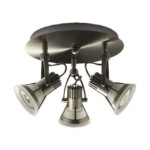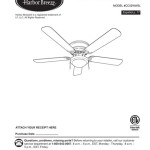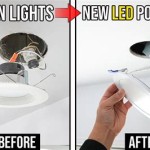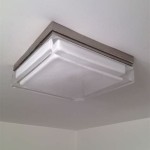Recessed Ceiling Light Housing: Exploring the Essential Aspects
Recessed ceiling light housing plays a pivotal role in enhancing the ambiance and illuminating indoor spaces. By seamlessly integrating into ceilings, these fixtures provide a discreet yet effective lighting solution. Understanding the essential aspects of recessed ceiling light housing is crucial for creating effective and visually appealing lighting schemes.
Types of Recessed Ceiling Light Housing
Recessed ceiling light housings are available in various types, each tailored to different requirements:
- IC-Rated Housings: Designed for direct contact with insulation, IC-rated housings prevent overheating and fire hazards.
- Non-IC-Rated Housings: Suitable for locations where insulation is not present or is maintained a safe distance from the fixture.
- Air-Tight Housings: Ideally used in airtight construction methods, these housings minimize air leakage, improving energy efficiency.
Housing Size and Depth
The size of the housing determines the diameter of the visible trim and the bulb type that can be used. The depth of the housing affects how far the fixture will recess into the ceiling, ensuring proper clearance for insulation and electrical components.
Trim Styles and Finishes
Trim styles come in a wide range of designs, from traditional to contemporary, to complement any interior aesthetic. Different finishes, such as white, black, brushed nickel, or chrome, add a touch of elegance and personal style.
Mounting Options
Recessed ceiling light housings offer various mounting options, including:
- Remodel Housings: Suitable for existing ceilings, these housings mount directly onto the drywall.
- New Construction Housings: Designed for use during construction, these housings are installed into ceiling joists before drywall installation.
Wattage and Bulb Compatibility
The wattage of the recessed light fixture determines the brightness output. It is crucial to consider the bulb type and compatibility to achieve the desired illumination. LED bulbs are a popular choice for their energy efficiency and long lifespan.
Additional Features
Some recessed ceiling light housings offer additional features, such as:
- Moisture Resistance: Housings designed for use in bathrooms or other moisture-prone areas.
- Adjustable Direction: Fixtures that allow the light to be directed in various angles.
- Trim-less Design: Housings that blend seamlessly into the ceiling, creating a minimalist look.
Conclusion
Understanding the essential aspects of recessed ceiling light housing empowers you to make informed decisions when choosing the right fixture for your lighting needs. By considering factors such as housing type, size, trim style, mounting options, wattage, and additional features, you can create a custom lighting scheme that transforms your indoor spaces into well-lit and aesthetically pleasing environments.

Halo H7 6 In Aluminum Recessed Lighting Housing For Remodel Ceiling Insulation Contact H7rict The Home Depot

Recessed Lighting Guide Lowe S

Halo H27 6 In Aluminum Recessed Lighting Housing For Remodel Shallow Ceiling Insulation Contact Air Tite H27ricat The Home Depot

The 101 On Recessed Lighting Part 2 Lightology

The 101 On Recessed Lighting Part 2 Lightology

Halo E26 4 In Steel Recessed Lighting Housing For Remodel Ceiling Non Ic Air Tite Adjustable Socket Bracket E4rtatsb The Home Depot

2x2ft Louver Housing Recessed Led Lights And Fixtures Ph

Ultimate Guide How To Install Recessed Lighting

Halo H750 6 In Aluminum Led Recessed Lighting Housing For New Construction Ceiling T24 Rated Insulation Contact Air Tite H750icat The Home Depot

Cost To Install Recessed Ceiling Lights In 2024 Forbes Home
Related Posts








